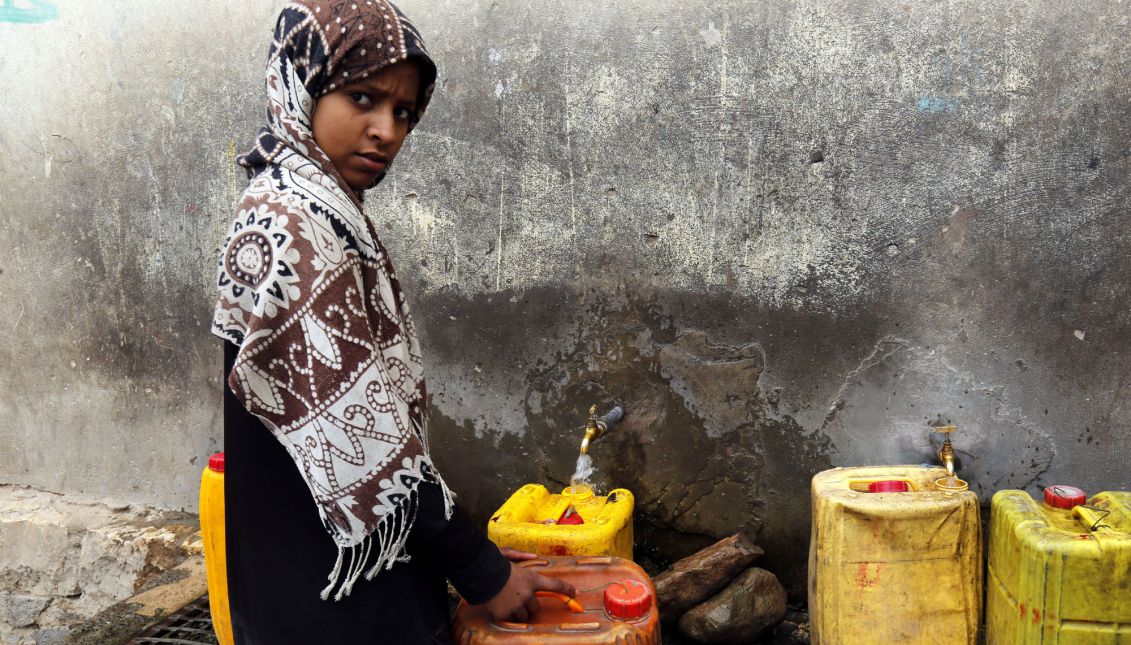
Over 180 million people in conflict-affected countries lack safe water
The organization highlighted the situation in Syria, where after 7 years of conflict 15 million people, of whom 6.4 million are minors, are in need of safe…
More than 180 million people in countries affected by conflict and instability do not have access to safe water, the United Nations Children's Fund reported on Tuesday.
"In countries beset by violence, displacement, conflict and instability, children's most basic means of survival - water - must be a priority," said Sanjay Wijesekera, UNICEF's global chief of water, sanitation and hygiene.
In a statement released to mark World Water Week, held this year from Aug. 27 to Sep. 1, Wijesekera asserted that "children's access to safe water and sanitation, especially in conflicts and emergencies, is a right, not a privilege".
A recent UNICEF analysis, conducted with the World Health Organization (WHO), found that in 2015, out of some 484 million people living in fragile situations, 183 million lacked basic drinking water services.
The organization highlighted the situation in Syria, where after 7 years of conflict 15 million people, of whom 6.4 million are minors, are in need of safe water, adding that this basic need has frequently been used as a weapon of war.
RELATED CONTENT
"In 2016 alone, there were at least 30 deliberate water cuts - including in Aleppo, Damascus, Hama, Raqqa and Dara, with pumps destroyed and water sources contaminated," the UNICEF statement said.
It also underscored the case of northeastern Nigeria, where conflicts have damaged or destroyed 75 percent of water and sanitation infrastructure, leaving 3.6 million people without basic water services, leading to malnutrition and diseases.
"When children have no safe water to drink, and when health systems are left in ruins, malnutrition and potentially fatal diseases like cholera will inevitably follow," Wijesekera said.
In Yemen, more than 53 percent of the 500,000 cases of suspected cholera and acute watery diarrhea have been recorded in children so far.
UNICEF also warned of the threat of famine in northeastern Nigeria, Somalia, South Sudan and Yemen, where nearly 30 million people, including 14.6 million children, urgently require access to safe water.










LEAVE A COMMENT:
Join the discussion! Leave a comment.